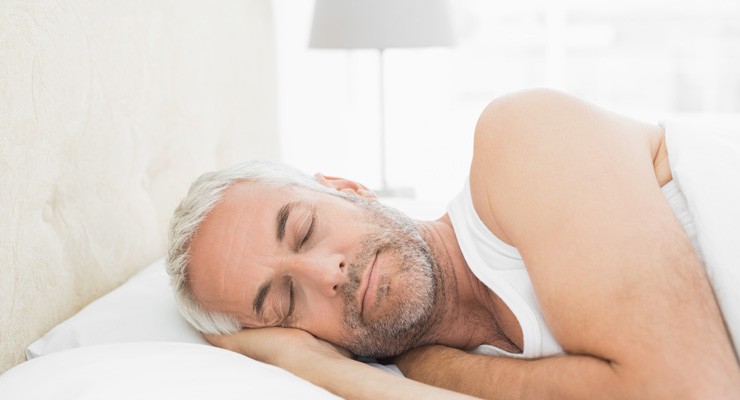Nutrition, Meals and Sleep
Changing your eating and drinking habits may help your sleep.

It is recommended that most healthy adults get seven or more hours of sleep per night, but most people sleep less than seven hours. In fact, more than one third of Americans have reported that sleep deprivation interferes with their work and social life at least a few days each month. However, lack of quality sleep will hurt more than your social life — studies show that not getting enough sleep on a regular basis may increase the risk of developing certain medical conditions such as high blood pressure, heart disease, obesity and other medical conditions.
Fortunately, there are several lifestyle habits that may help improve the quality of your sleep, including changing certain eating and drinking habits. Making these small changes may help you make the most of your shut-eye:
Eat well. Dietary guidelines recommend that most healthy Americans:
- Eat an assortment of fruits and vegetables
- Make at least half their grains whole grains
- Include fat-free or low-fat milk dairy or other fortified dairy-like beverages such as soy milk
- Enjoy a variety of proteins such as seafood, nuts, legumes (beans and peas), lean meat and poultry
- Add healthy oils such as olive and canola oil
Don’t eat big meals late at night. Avoid rich, heavy, spicy or acidic foods within two hours of bedtime.
- High-fat foods take a lot of work for your stomach to digest, and that may keep you up.
- Spicy or acidic foods may cause stomach trouble and heartburn, especially while lying down in bed.
People with esophageal reflux may be advised to remain upright for two to three hours after eating.
Cut down on caffeine, if you’re sensitive. Food or beverage with caffeine may disturb some people’s sleep. Caffeinated teas, coffee and some sodas block cell receptors that are used to trigger sleep-inducing signals; fooling the body into thinking it isn’t tired.
- Caffeine can take up to eight hours to wear off completely. If you are sensitive, limit eating food or drink with caffeine after late afternoon.
- Some medicines, including some pain relievers, contain caffeine as well.
Avoid alcohol before bed, if you choose to drink at all.* Though small amounts of alcohol may make it easier to fall asleep, alcohol actually interferes with deep sleep and with staying asleep.
Avoid drinking fluids too close to bedtime. If the need to urinate wakes you up in the middle of the night, limit liquids before bedtime.
Quit smoking. The nicotine in cigarettes is a stimulant that may keep you awake and lead to lighter sleep overall. Heavy smokers also tend to wake up too early because of nicotine withdrawal.
*The recommendation is no more than one drink a day for women and no more than two for men. Some people should not use alcohol at all.
By Riley Beggin, Contributing Writer
Sources
National Heart, Lung, and Blood Institute. Your guide to healthy sleep. Accessed: November 9, 2016.
National Heart, Lung, and Blood Institute. How much sleep is enough? Accessed: November 9, 2016.
U.S. Department of Agriculture. Dietary guidelines for Americans 2015-2020. Accessed: November 9, 2016.
Updated November 9, 2016
